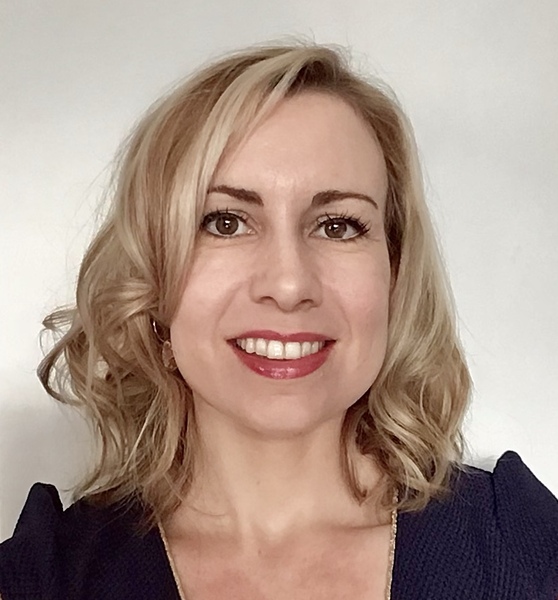Improving your French vocabulary means consistently adding more and more items to your memory, like building blocks that you will later use to craft your sentences.
What’s the best way to manage this process? A great method of gathering everything in one place and ensuring to memorize new items, without forgetting old ones, is using flashcards.
Not only does it save you a lot of time, it also frees your mind from overwhelm, ensuring a reliable review routine you can stick to.
While paper flashcards are tempting to help decrease screen time, the algorithm of an app like Brainscape will simplify your life and boost your effectiveness to the point that learning vocabulary will become almost painless.
Why use flashcards to study French
• Spaced. Repetition. System. Really. Works.
Apps like Brainscape use spaced repetition system (SRS), which means that every time you review a flashcard, you also rate how well you recall it. Then the time interval until the next occurrence of the card increases or decreases accordingly.
In fact—and I can’t stress this enough—the process of active recall (testing yourself) has been proven to be far more effective than rereading. It’s the best way to build and strengthen the synaptic connections in neurons to improve memory.
More about the science of it with a cool comic here.

• Anytime, anywhere
Having a flashcards app on your phone gives you the flexibility to study French anywhere and anytime, even offline or for just 2 minutes. Whether waiting in line or between two appointments, it might quickly become your new powerful study habit.
What’s more, you can create a flashcard on the fly in 20 seconds, should you come across a new expression in a podcast or during a conversation. No more missing opportunities to seize valuable vocabulary because it’s now quick and easy to add a new item to your app.
6 tips for making flashcards
1. Create your own
While there are a lot of available ready-made flashcard decks, my advice is to compose your flashcards yourself. They will be more relatable and adapted to your current specific communication needs and level. Plus, the act of creating them and remembering the context of how you came into contact with each new sentence will help jog your memory.
2. Keep it simple
Don’t fall into the trap of spending more time creating your flashcards than reviewing them. Do you really need to attach this picture, that recording? Do you have to understand every nuance of a word before memorizing it?
Keeping the creation process quick is also what will motivate you to make new flashcards more often and thus improve faster. Done is better than perfect and you can always modify your flashcards during the review process to make them more relevant.
3. Go from English to French
Simply because you don’t want to train yourself to recognize a sentence. Rather, you need to know how to translate it from English to French. It’s far more useful and challenging.
4. Don’t write single words
Words in isolation are to be avoided as much as possible. Aim for sentences or groups of words that form chunks. This will allow you to use them directly after memorization instead of translating word-for-word and sounding unnatural.
Examples:
Instead of two flashcards “une voiture” and “rouge”, write “une voiture rouge”. On top of learning those two words it will reinforce the rule that most adjectives follow the noun in French.
Instead of writing down “une sieste” by itself, make a flashcard “faire une sieste”. This avoids you falling into the trap of literal translation and saying “prendre une sieste”. Even better, you can conjugate the verb in a tense you are currently studying, for example, “Je fais une sieste.”
5. Learn what’s relevant
Before creating a flashcard, ask yourself: “Am I going to use this item when I talk in French?” and “At this point in my French studies, do I need to understand someone saying it?” If the answer is no, if this is not relevant for right now, don’t bother. You will just waste precious time and energy you could allocate to studying what really matters for your improvement.
6. Get creative
Add some variety to your flashcards. Try different types. Some sentence structures are better studied in French with a blank space and the word in English below. If the pronunciation is challenging, record a native speaker and attach the file to the card.
You can make a flashcard with several items that are confusing. For example, it’s better to recall “la semaine dernière”, “cette semaine” and “la semaine prochaine” together than making 3 separate cards. With experience, you will find what works best for you and tweak your flashcards accordingly.
Bite-sized tips to boost your effectiveness
• Choose a time (or times) to test yourself every day and create new cards at least once a week.
• If you know the answer, say it aloud: it will reinforce the memory.
• If you don’t know, keep racking your brain for 30 seconds to trigger your memory. Even if you don’t recall the sentence, it will help the memorization process. After turning the card, read the sentence aloud.
I know a lot of clients who were reluctant to use flashcards... And changed their mind, amazed to see how much a game-changer such a simple method could be. Now that you know more about the power of flashcards, will you give them a try?
